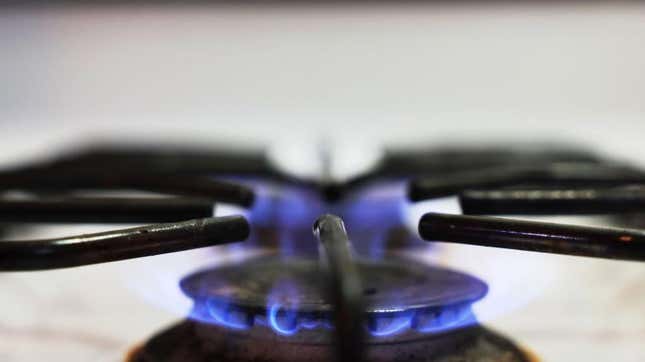
Construction and gas trade groups have filed a lawsuit to block a law passed by New York officials that would ban furnaces and gas stoves in newly constructed buildings.
The lawsuit was filed last Thursday in the U.S. District Court for the Northern District of New York by several groups, including the National Association of Home Builders. In the filing, the plaintiffs argue that a law passed in New York State this year violates federal rules on how gas appliances are regulated. They claim that New York officials do not have the ability to enforce a ban due to a federal law called the Energy Policy and Conservation Act, which already regulates energy policies.
The gas ban passed this May when New York Governor Kathy Hochul signed the All Electric Buildings Act. This made New York the first state to ban gas hook-ups in new buildings. The law aims to decrease the use of fossil fuels in the state and is supposed to take effect for new buildings smaller than seven stories high by 2026. This means those properties will not be allowed to use gas-powered appliances like water heaters, furnaces, and stoves. The policy will apply to larger buildings starting in 2029. It does not apply to existing buildings.
The many unions and plaintiffs that are part of the lawsuit claim that the ban is already affecting them, even though the law hasn’t yet gone into effect. “The ban presents an existential threat for the small, family-owned businesses in New York that sell, install, and service gas equipment and infrastructure,” the filing said. “It threatens the livelihoods of the individuals who work in these fields.”
They also argue that, if the gas ban for new buildings is not overturned, it will hurt state residents, too. “Millions of New Yorkers use natural gas, propane, and oil for home heating, cooking, and hot water, particularly in the coldest winter months, and the decision to outright prohibit the use of all fuel gas—even propane—in new buildings is at odds with citizens’ and businesses’ need for reliable, resilient, and affordable energy,” the filing said.
Several Democrat-led cities have passed similar bans this year, including Berkeley, California (that law was later knocked down). Opposition to gas stoves became a culture war touchpoint this year, with many right-leaning politicians considering this a major affront to freedom.
The impassioned battle over banning or not banning gas stoves began in January, when Richard Trumka Jr, a commissioner for the Consumer Product Safety Commission (CPSC), suggested that the agency was exploring ways to better regulate or even ban gas stoves due to their health impacts. Uproar followed. Alexander Hoehn-Saric, the chair of the CPSC, then issued a statement saying that Commission didn’t actually have any plans to ban gas stoves.
Gas stoves do harm people’s health. A study published last October described how these stoves leak cancer-causing benzene, and another study from late last year estimated that one in eight cases of childhood asthma in the U.S. could be attributed to indoor pollution caused by gas-powered stoves. And then there’s the impact to the climate to consider—the stoves leak potent greenhouse gas even when they’re off.
Want more climate and environment stories? Check out Earther’s guides to decarbonizing your home, divesting from fossil fuels, packing a disaster go bag, and overcoming climate dread. And don’t miss our coverage of the latest IEA report on clean energy, the future of carbon dioxide removal, and the invasive plants you should rip to shreds.